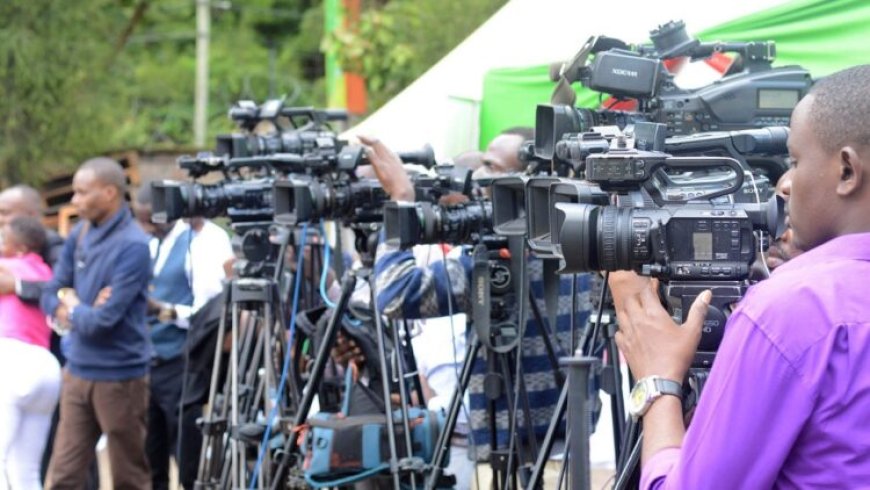Lack Of Fees & 7 Reasons Kenyan Journalists Can't Renew Press Cards- MCK Report
It is worth noting that it costs Ksh2,000 to renew a press card every year, excluding other costs such as transaction fees through mobile money platforms.

A report released on Thursday, June 13 by the Media Council of Kenya (MCK) revealed eight major challenges preventing journalists from renewing their press cards which show proof of their accreditation across the country.
The MCK is mandated to provide accreditation to journalists who have satisfied their requirements. Journalists are issued press cards which serve as an identification method for members of the profession in national functions or any other location of assignment.
In the report titled Impact of Digital Disruption on Accreditation & Media Standards in Kenya 2024, the biggest hindrance to the renewal of press cards amongst journalists is the lack of renewal fees, with 32 percent responding to this.
It is worth noting that it costs Ksh2,000 to renew a press card every year, excluding other costs such as transaction fees through mobile money platforms.

Media Council of Kenya (MCK) CEO, David Omwoyo speaking during a meeting with creatives in Nairobi where he launched a report on the impact of digital disruption on accreditation and media standards on June 13, 2024. /MEDIA COUNCIL OF KENYA
Other reasons cited as hindrances to the renewal of press cards are the MCK accreditation portal being complicated (10 percent) and a lack of recommendation letters (9 percent).
"People practising without a press card (5%), lack of affiliation (4%), press card didn’t protect from police harassment (2%), unethical conduct (1%) and pending legal issues (1%) are also hindrances to the renewal of press card," the report read in part.
According to MCK, accreditation arguably remains a key pillar in media standards and content regulation in Kenya, thus the need to keep interrogating processes and technologies for better delivery.
However, a transitional media landscape to the digital space has almost liberalized the media profession, giving birth to digital media platforms and citizen journalism.
"The effect of digital disruption on practices related to media accreditation is that it has led to an increase in citizen journalism (46%), led to diversified media platforms (43%), led to mis/disinformation challenges (41%), facilitated global access to information (40%) and increased cybersecurity concerns (31%)," the report added.
Nonetheless, journalists still feel the need to seek media accreditation, with the MCK report citing professional recognition (66 percent), access to training and development opportunities (18 percent), access to information (9.6 percent), networking opportunities (3 percent) and complaints resolutions (0.2 percent).
The survey recommended major improvements to be made to the media accreditation requirements including the prerequisite recommendation letter from the employer or institution of higher learning to eliminate quacks.
Furthermore, it was recommended that a representative from the council should be deployed to all Huduma centres and for accreditation cards to be available all over the country, not only in Nairobi.
MCK was also recommended to make its accreditation portal simplified and for the accreditation period to be after every five years.
"Accreditation to media students to be conducted after graduation and add more security features on the press cards and reduction of renewal fees," added the report.
Approximately 56 percent of the respondents felt that the current state of media accreditation in Kenya is effective, with 39.4 percent perceiving the current state of media accreditation as in transition while 4.6 percent describe the state of media accreditation to be ineffective.
How Was The Survey Done?
The survey was conducted between December 17, 2023, and January 23, 2024, and adopted a hybrid approach in which interviews were conducted through Computer Assisted Personal Interviewing (CAPI) and Key Informant Interviews of key stakeholders in the media sector.
A sample of 457 was stratified to cover all the journalist categories in the country. It was further distributed proportionately in each of the categories.







